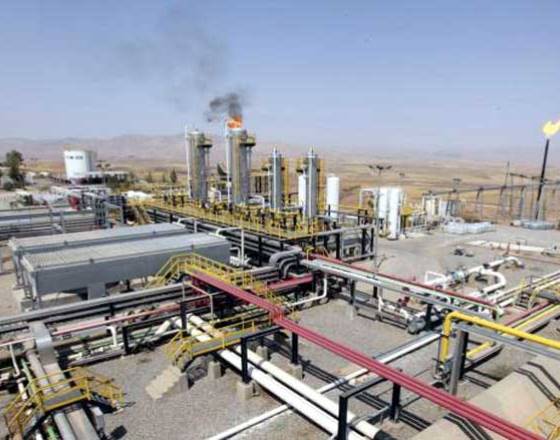
Representatives of the Kurdistan Regional Government (KRG) and Iraqi government addressed a Washington DC conference hosted by Johns Hopkins’ School of Advanced International Studies. Thursday’s day-long meeting aimed to inform Americans about the general climate for foreign investment and other business activity.
Americans now see Iraq mostly in terms of the war against the Islamic State (IS.) The conference was a welcome departure from that narrow focus. As the speakers repeatedly affirmed, IS will be defeated, and people need to look to the future, beyond the current conflict.
The KRG Representative to Washington, Bayan Abdul Rahman, reminded the audience that despite the war, life goes on, and the economic needs of the population have to be addressed. Others noted that much of Iraq, the center and south, is untouched by the war, while the KRG, nearly in its entirety, is also peaceful.
KRG and Iraqi representatives alike stressed the need to diversify their economies and decrease their reliance on oil. That goal existed even before oil prices collapsed, but has become more urgent since.
Noori Abdul Rahman, the KRG’s Board of Investment Chairman and Minister of Coordination and Follow Up, emphasized the importance of private sector development. The KRG’s first priority is industrial development, followed by agriculture and tourism, he explained.
Sami Al-Araji, Head of the Iraq National Investment Commission, acknowledged that Iraq was “still a centrally-guided economy” and had “a long way to go.”
Diversification requires political decentralization, devolving central government powers to the provinces, he explained. He suggested that parliament was the biggest obstacle to such decentralization. Moreover, not all provinces necessarily had the capacity to handle new authorities.
Asked about decentralization in the financial sector, specifically, the Rafidain and Rashid banks, Araji replied that a decision had been taken to change the banking law, but “we have been delayed” in implementing it.
The various ways in which the Kurdistan Region suffers economically by remaining part of Iraq also emerged. Needless to say, this point was not on the agenda, and no speaker actually tried to make it, but it came out, nonetheless.
James Parks, a former World Bank economist and now Financial Advisor to the KRG Deputy Prime Minister, explained some of the difficulties in diversification. For starters, it requires a healthy financial sector. Yet the Central Bank of Iraq (CBI) does not operate within the Kurdistan Region—which has very negative consequence for the financial sector in the Kurdistan Region. The KRG has requested that an autonomous CBI branch be established in Erbil. However, Baghdad has not responded.
The conference included an unusual, very engaging speaker: Justin Carney, a Kansas farm boy who became involved in Kurdish agriculture after 2005 and now works in Sulaimani, where he is raising his family.
Carney related a telling anecdote to K24. He once tried to introduce a new seed type into Iraqi agriculture. Typically, countries require that new seeds be tested and approved. They welcome seed that will improve agriculture, but do not want to admit harmful products.
Seeds are usually tested over the course a year under the supervision of the Department of Agriculture. But Baghdad requires eight years of tests. There is no evident reason for that, and during eight years, a superior seed may well emerge, in which case, the approved seed is not the cutting edge product it had once been.
In Carney’s single attempt to deal with Baghdad, he was asked for a $10,000 bribe to get his seed approved. He refused and has stuck to the Kurdistan Region since.
One reason for Iraq’s over-regulation, as Carney’s story illustrates, is the opportunities for personal enrichment that a maze of rules offers government employees.
Last month, Baghdad and the International Monetary Fund (IMF) reached a tentative agreement on a $5.4 billion loan. However, the loan is conditional: Baghdad must lower its budget deficit and reduce its debt to oil companies operating in Iraq.
Minister Abdul Rahman was doubtful that Iraq would meet those terms. And even if the IMF loan was concluded, he did not expect Baghdad to share any of those funds with the KRG.
Finally, there was one point on which the speakers, American, as well as Iraqi, all agreed: the days are over of centralized regimes in Iraq and Syria, where the capital exercises tight control over the rest of the country. That model—which dominated the last century—has failed spectacularly, both politically and economically. Change is coming.
original source: http://www.kurdistan24.net/en/Analysis/af9523c9-4208-4b05-9cf2-c954aa0c5a20/Diversification--KRG%E2%80%99s-Economic-Future
